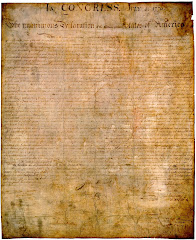Friend of the Kennedys, enemy of Norman Mailer, Gore Vidal is an extraordinary compendium of American politics and literature

Playing to the gallery ... Self-confessed 'American patriot' Gore Vidal. Photograph: Eamonn McCabe
Ben Marshall |guardian.co.uk | May 23, 2008 3:45 PM
It was a strange sensation to see Gore Vidal wheeled on stage in Brighton last night. As his recent appearance on the South Bank Show revealed, Vidal is, for the first time ever, looking, if not sounding, his age. He was born in 1925, the year F Scott Fitzgerald published The Great Gatsby, but he still has something of the enfant terrible about him, even sitting trembling and shrunken in a wheelchair. Furthermore he seems, in his archness and studied pomposity, to belong to a time I fancifully imagine, and he credibly claims, to have been altogether more thoughtful and civilised than our own.
Vidal has written more than 25 novels, another 20 or so works of non-fiction, more than a half dozen plays and, I think, eight screenplays. And of course he has met pretty everyone who matters from the worlds of politics and the arts. Amongst his friends he could count Tennessee Williams, James Baldwin, John Kennedy, the Clintons and pornographer Bob Guccione. And his enemies make for an equally exalted list - Truman Capote, Bobby Kennedy, Norman Mailer, the Reagans and of course the Bush family (and I do mean the entire family, he hates the whole dynasty, probably because they are almost as ancient and American-aristo as his own).
It was politics that Vidal stuck to in Brighton, despite interviewer Andrew Marr's valiant efforts to talk about his novels, plays and poetry. Vidal's long-practised technique is to mix extraordinary anecdotes with mostly incisive, occasionally glib observations about the parlous state of the United States. Thus an early question about literature evoked a story about JFK, which in turn evolved into a critique of Republican Presidential candidate John McCain and, swiftly but inevitably turned into a vitriolic attack on George W Bush.
And this was a problem for me. Gore, despite his impeccable credentials as a snob, cannot help but play to the gallery. So the second he detected that Brighton loathed the present American administration (and perhaps America and Americans too) he wasted no time in attacking it, them and everything it and they stand for. Often in the crudest terms. For instance calling Bush a "cretin" seems to me to be both inaccurate and lazy, but it elicited huge laughs. So Gore persisted. Bush began as a "cretin", was soon a "real cretin", occasionally an "imbecile", and ultimately a "congenital cretin". The audience just lapped this stuff up.
His best moments, as ever, came when he defended the American constitution, something, he stressed, he and his family have always done. He made one marvellous point - alluding to the Virginia Statute and the First Amendment - concerning the US in particular and the world in general. Gore, rightly in my view, thinks that anyone who believes in an afterlife should never be afforded any power whatsoever over the lives of others.
Once again the crowd, audibly prepared to storm Grosvenor Square, appeared to assume he was simply talking about Dubya and his God-fearing, tub-thumping, Bible-bashing mates. It was left to a member of the audience to ask the question that elicited the simplest, most unequivocal reply. Given his remorseless defence of the constitution, would Gore Vidal consider himself an American patriot? "Yes!" he shouted, from his wheelchair. There was only the faintest ripple of polite applause. No surprise, given the ghastly nature of the Brighton crowd.
Me? With patriots like Gore Vidal around, I walked home whistling The Star Spangled Banner.






